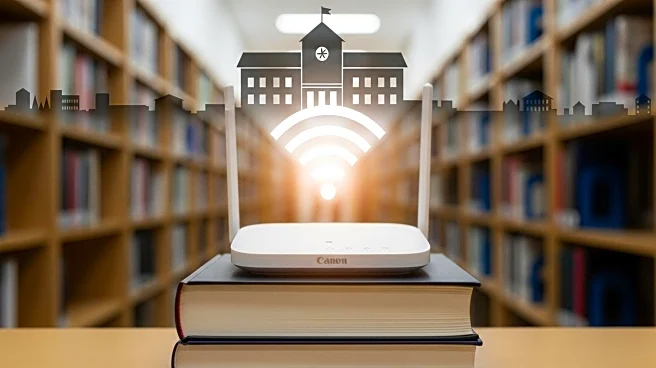What's Happening?
The Federal Communications Commission (FCC) is considering proposals to end funding for Wi-Fi on school buses and library hot spots, programs initiated during the pandemic to extend internet access beyond classrooms. These proposals would reverse previous decisions that allowed school bus Wi-Fi and off-campus Wi-Fi hot spots to be reimbursed under the E-rate program. FCC Chair Brendan Carr argues that these initiatives, expanded during the Biden administration, exceed the FCC's authority and waste taxpayer funds by providing unsupervised screen time for children. If adopted, schools and libraries would need to find alternative funding for off-campus Wi-Fi starting in 2025.
Why It's Important?
The potential rollback of E-rate funding for Wi-Fi hot spots could exacerbate the 'homework gap,' where students lack internet access at home to complete schoolwork. This gap disproportionately affects students in rural and low-income areas, potentially leaving them behind in digital literacy. FCC Commissioner Anna Gomez warns that removing this connectivity could disconnect millions of students and seniors who rely on these services for homework and telehealth. The decision could force schools and families to find other ways to bridge the gap, which may be challenging for less affluent communities.
What's Next?
As the FCC prepares to vote on these proposals, schools and libraries may need to develop contingency plans to secure alternative funding sources. The outcome of the vote will determine whether these institutions can continue providing essential internet access to students and families. Stakeholders, including the Schools, Health and Libraries Coalition, emphasize the importance of federal subsidization to address the digital divide and ensure equitable access to internet services.











